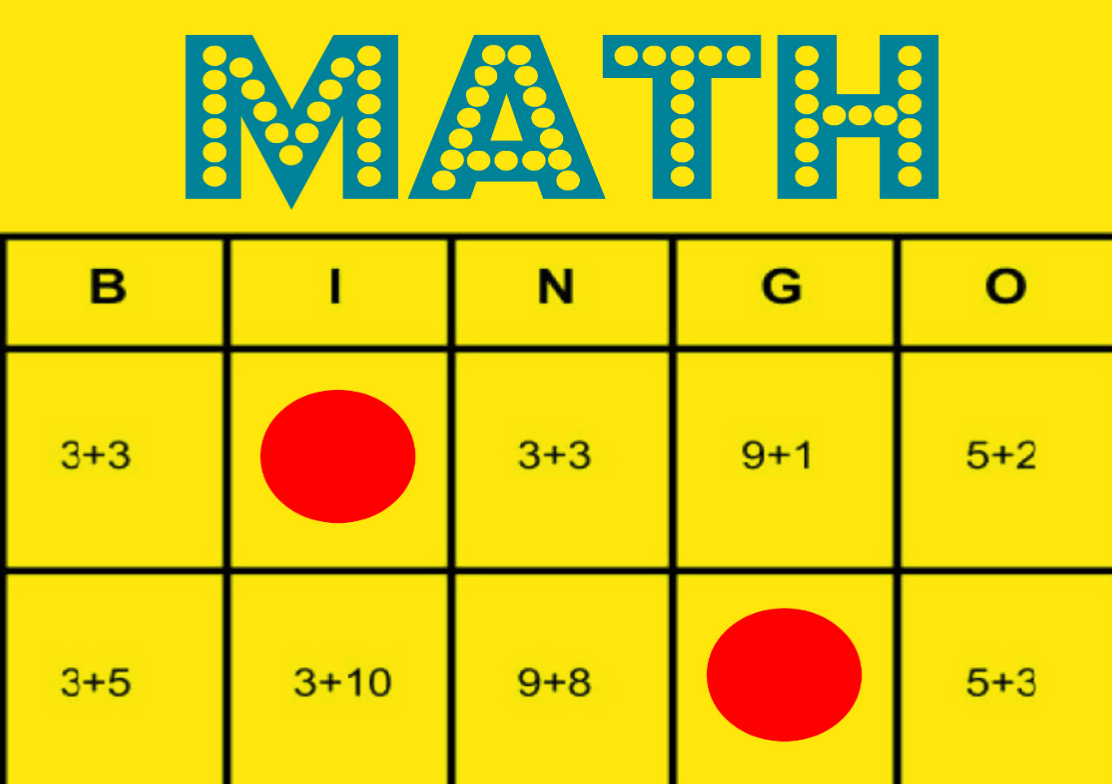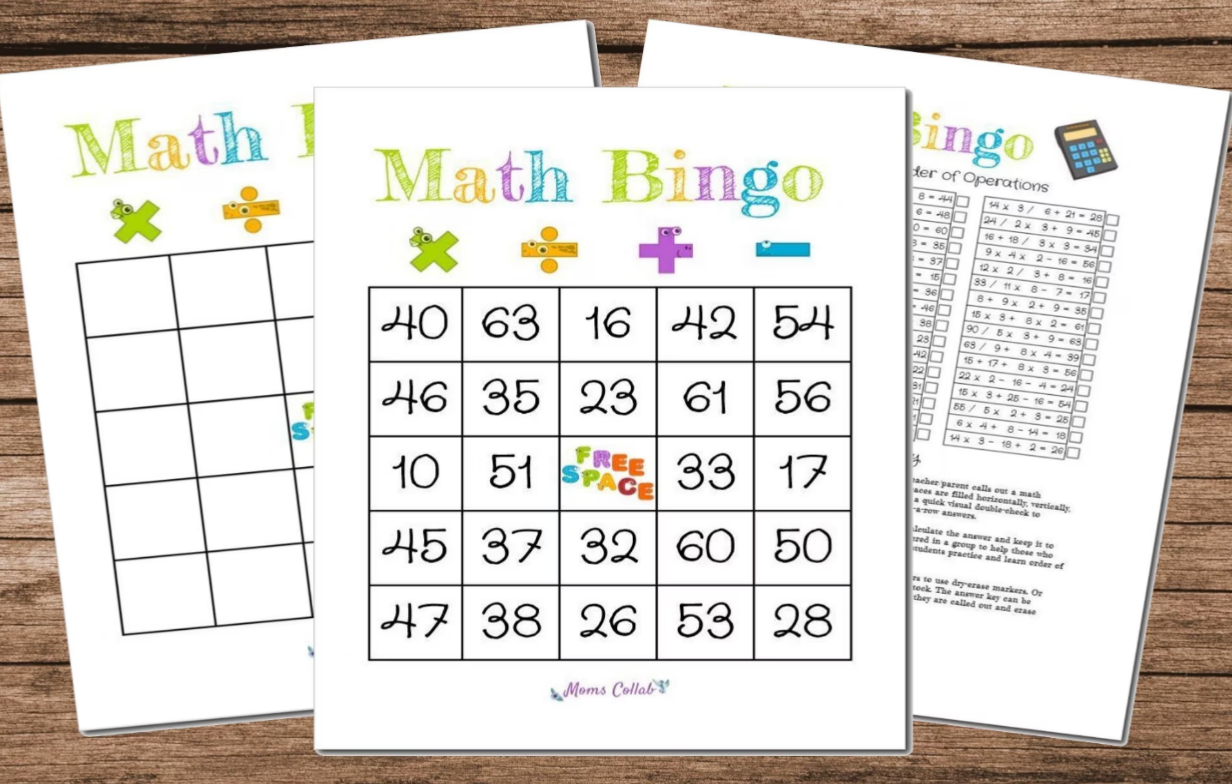Bingo exercises math skills like probability, pattern recognition, and quick mental calculations.
Introduction
Explanation of Bingo
Bingo, a game of chance popular in various cultures, involves players matching numbers printed in different arrangements on cards with the numbers the game host draws at random. Typically, players mark off the numbers on their cards as the host announces them, aiming to achieve a specific pattern, such as a straight line or full house, to win.

Overview of the Relationship between Bingo and Mathematics
The relationship between Bingo and mathematics mainly manifests in probability, number patterns, and statistical analysis. Understanding these mathematical concepts enhances the gameplay and strategy. For instance, the probability of drawing a particular number helps players gauge their chances of winning, and recognizing number patterns can lead to more strategic card selections.
Purpose and Scope of Discussion
This discussion aims to explore Bingo’s mathematical dimensions, focusing on how the game relates to and utilizes various mathematical principles. The examination covers basic mathematical concepts like probability and pattern recognition to more advanced topics like statistical analysis and predictive modeling. The goal is to provide a comprehensive understanding of Bingo’s mathematical nature, valuable for both educational and recreational perspectives.
Mathematical Concepts in Bingo
Probability and Odds in Bingo
Probability plays a crucial role in Bingo. It involves calculating the likelihood of specific numbers appearing and the chances of achieving a winning pattern on a bingo card. For example, in a standard 75-ball Bingo game, each number has an equal 1/75 chance of being drawn at the outset. As the game progresses without a specific number being called, the probability of that number being called in subsequent draws increases. Expert players often analyze these odds to enhance their game strategy, although luck remains a significant factor.
Number Patterns and Sequences
Bingo also involves recognizing and predicting number patterns and sequences. Certain Bingo games may focus on forming specific patterns on the card, such as horizontal, vertical, or diagonal lines, squares, or other shapes. Understanding these patterns and choosing cards with numbers that might help complete a pattern swiftly can be part of an effective Bingo strategy. Some players believe in the “law of averages” and choose cards that represent a spread of numbers, assuming that, over time, each number has a similar frequency of appearance.
Statistical Analysis of Bingo Outcomes
Statistical analysis in Bingo involves examining past game results to discern any trends or patterns. For instance, if a player records the numbers called in multiple Bingo sessions, they might identify certain numbers that appear more frequently. Although each number theoretically has an equal chance of being called, irregularities in the bingo blower machine or random fluctuations can create short-term trends that some players may try to exploit.
The Role of Randomness
Randomness is a fundamental aspect of Bingo, making it unpredictable and exciting. The random draw of numbers ensures that no player can know or control which number will be called next, making the game fair and unbiased. This randomness is key to Bingo’s classification as a game of chance rather than a game of skill. Despite players’ efforts to apply mathematical concepts to improve their odds, the outcome of each game largely depends on luck, as each number draw is an independent event.
Educational Perspectives
Using Bingo to Teach Mathematics
Bingo finds its place in the classroom as an effective tool for teaching mathematics. Educators use Bingo to make learning numbers fun and engaging, especially for younger students. For instance, in a math Bingo game, instead of simply calling out numbers, teachers might call out math problems. Students then have to solve these problems and mark the corresponding answers on their Bingo cards. This method can cover various mathematical topics, from basic arithmetic to more complex subjects like fractions, geometry, and algebra.
Cognitive Skills Developed Through Bingo
Playing Bingo can also aid in developing several cognitive skills. These skills include:
- Numerical Recognition: Young children learn to recognize and differentiate between numbers.
- Mental Agility: Solving mathematical problems quickly to mark Bingo cards helps sharpen mental arithmetic skills.
- Pattern Recognition: Identifying patterns necessary to win in Bingo can enhance a child’s spatial awareness and strategic thinking abilities.
- Concentration and Focus: Keeping track of numbers called and concentrating on card patterns require and thus help improve a child’s attention span.
Case Studies and Research Findings
Several studies and research projects underline the educational benefits of using games like Bingo in teaching mathematics. For example, a study published in the Journal of Educational Psychology demonstrated that students who participated in math Bingo games showed a significantly higher level of engagement and achievement in math compared to those who didn’t. Another research project highlighted how Bingo games could reduce math anxiety, making learning a more enjoyable experience.

Comparisons with Other Educational Games
When comparing Bingo to other educational games, its simplicity and adaptability emerge as major strengths. Unlike more complex educational games that may require special equipment or in-depth rules, Bingo is straightforward and can adapt to various learning levels and subjects. For instance, while a game like Scrabble requires linguistic skills and can be challenging for younger students, Bingo’s number-based format is universally accessible and easy to modify for different skill levels.
Advanced Mathematical Models in Bingo
Algorithmic Complexity of Bingo Games
Exploring the algorithmic complexity of Bingo involves understanding how different game designs affect the unpredictability and enjoyment of the game. Researchers use algorithms to analyze various aspects of Bingo, such as the distribution of numbers and the probability of specific game patterns. These analyses can help in creating more balanced and engaging Bingo games. For example, algorithms can ensure that the numbers drawn are truly random, preventing any unintentional biases that might make the game predictable or unfair.
Predictive Models and Game Theory
Predictive models and game theory play significant roles in understanding and potentially forecasting outcomes in games like Bingo. Game theory, with its focus on strategic decision-making, isn’t directly applicable to Bingo’s random number draws. However, it can apply to the decision-making process in choosing Bingo cards or deciding how many cards to play in each game. Predictive models, on the other hand, might analyze past number draws to predict future outcomes, although the inherently random nature of Bingo makes such predictions more speculative than definitive.
Mathematical Optimization in Game Design
Mathematical optimization in game design refers to the process of refining game rules and layouts to achieve specific objectives, like maximizing player engagement or ensuring fair play. In Bingo, optimization might involve tweaking the rules, such as the patterns required for a win or the number distribution on the cards, to ensure that each game remains exciting and challenging. Optimization algorithms can help designers test different game variants, analyzing which versions provide the best balance between challenge and enjoyment.
Bingo and Computational Mathematics
Bingo’s relationship with computational mathematics primarily revolves around number generation and pattern analysis. Modern Bingo games, especially online versions, use computational algorithms to generate random numbers, ensuring fair play. Computational mathematics also aids in analyzing game patterns and player behavior, providing insights that can be used to refine the game and enhance user experience. This intersection of Bingo and computational mathematics represents an intriguing blend of recreational gaming and serious mathematical inquiry.
Societal and Cultural Impacts
Bingo in Different Cultures and Its Mathematical Implications
Bingo, though universally recognized, manifests differently across cultures, influencing and reflecting various mathematical understandings. In some cultures, Bingo serves as a simple pastime, while in others, it’s a tool for education and socialization. For example, in the UK, Bingo has a rich history as a popular social game played in halls, influencing group dynamics and community engagement. The mathematical implications in these cultural contexts vary. While in educational settings, Bingo can help in understanding probability and number theory, in social settings, it often serves more to stimulate quick mental arithmetic and pattern recognition skills.
The Influence of Bingo on Numerical Literacy
Bingo’s impact on numerical literacy is particularly notable in early childhood and senior citizen communities. For children, Bingo can be an effective way to enhance number recognition, counting skills, and basic arithmetic. In older populations, the game helps in maintaining mental agility and delaying the cognitive decline associated with aging. The game’s simplicity and the need for number recognition and quick thinking support these groups in strengthening their numerical skills in a fun and social setting.
Ethical Considerations in Game Design and Mathematics
The ethical considerations in game design, especially in games involving mathematics like Bingo, revolve around ensuring fairness, preventing addiction, and promoting responsible gaming. Game designers and mathematicians must ensure that the random number generation algorithms used in Bingo are not only fair and unbiased but also transparent. Additionally, considering the game’s popularity across various age groups, it’s crucial to design these games in a way that prevents gambling addiction, particularly in formats that involve betting or monetary rewards.
Future Trends in Bingo and Math Education
Looking towards the future, the integration of Bingo in math education might see innovative transformations thanks to technology. Digital platforms could offer more interactive and customizable Bingo experiences, enabling educators to tailor the game to different mathematical concepts and skill levels. There’s also potential in using Bingo to introduce more complex mathematical ideas such as statistical inference or even basic algebra, especially as part of gamified learning applications. Furthermore, advancements in AI and machine learning might lead to the development of more adaptive Bingo games that can assess and respond to a player’s skill level, providing a more personalized learning experience.

